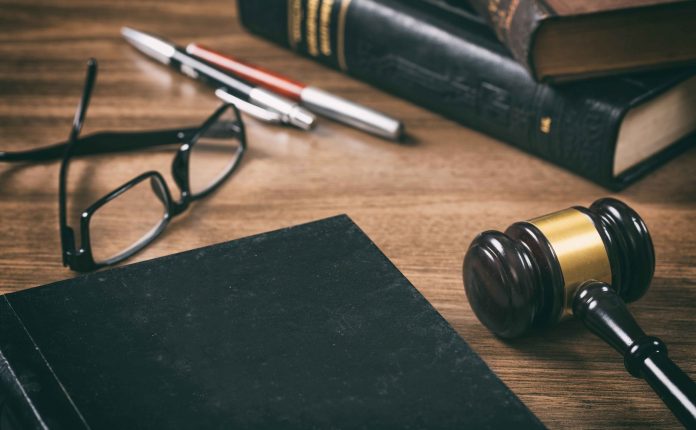This article is written by Abhishek Chaudhary Attri, who is pursuing BBA LL.B from UPES, School of Law, Dehradun.
Table of Contents
Introduction
When individuals in positions of authority misuse their powers and go rogue against humanity, we witness large-scale criminal acts, where death becomes a statistic. Such individuals need to be held accountable for their actions. This article deals with the prosecution, the accountability and post-transitional justice of such top tier officials.
The prosecution of top-tier officials : a look into the scenario
Amid the Second World War, humanity witnessed gross violations of humanitarian laws, particularly in the form of the Holocaust where Jews were persecuted as per the anti-semitism policies of the Nazis and were later sent to concentration camps where they were burned alive in incinerators and poisoned in gas chambers. After the Germans surrendered, many top Nazi officials were accused of war crimes during the Nürnberg trials. The need was felt for an international court to deal with the atrocities related to crimes against humanity, and in pursuance of this, the Convention on Prevention and Punishment of the Crime of Genocide was adopted. In the year 1998, the International Criminal Court was established through the Rome Statute, in the wake of war crimes and genocide occurring in Yugoslavia and Rwanda. The International Criminal Court (ICC) is responsible for the prosecution of top officials.
The ICC does not have the jurisdiction to try anyone below the age of 18. However, no person over 18 years of age is exempted from prosecution, be it high-level politicians, military officials or even the heads of states or governments. Also, the person in authority can be held responsible for the crimes committed by those under his command. The trials are in no manner subject to political control; they are based solely upon the legal criteria set under the provisions of its founding treaty, the Rome Statute.
Any state party can approach the ICC via the office of the prosecutor to request an investigation upon a reasonable basis of reliable information. The prosecution then obtains permission from Pre-trial Chambers before initiating an investigation. In certain circumstances, the office of prosecution can initiate the investigation on its own if it receives reliable information about the atrocities being committed in a state. The investigation then leads to the person who bears the greatest responsibility in commission of these crimes based on the evidence gathered. The Pre-trial Chambers then issues a warrant of arrest or summons to appear. The Pre-trial chambers comprise 1-3 judges, and their primary function is to resolve the issues before the trial begins.
Upon the arrest of the official, the charges are confirmed by the pre-trial chambers. The presidency then constitutes the trial chambers composed of three judges to try the case, and thereby the trial phase begins. The charges against the accused are read to them and it is made sure that it is understood by them. If the accused pleads guilty to the charges with the prior consultation of their lawyer and the Trial Chambers is satisfied that the plea is supported by the facts of the case and the evidence contained, the accused is convicted of the crimes committed. In cases when the Trial Chambers is not satisfied with the conditions, the trials shall commence.
As the trial commences, the prosecution presents its case first and witnesses are called to testify. The prosecution then conducts the examination of witnesses and the defence cross-examines them. After the prosecutor presents all the evidence, the accused, with the assistance of their counsel, presents its defence. After hearing both sides and examining the testimony of witnesses and all evidence presented, the judges pronounce whether the accused is guilty or innocent. The pronouncement of the judgement is public and a maximum sentence of 30 years can be imposed, however, in certain extreme circumstances, a life sentence can be imposed.
Individual and State : the fundamental odds
A country whose top officials, be it politicians or military leaders, have been convicted of gross violations of human rights, needs to be held accountable to have a transition into a new justice system to ensure that no such atrocities occur in the future. To hold individual accountability, the punishment shall be effective and enforceable. However, sometimes, states can intervene in this process of retributive justice and come up with penalties or sanctions that are often vague and have no effect, thereby shielding them in circumstances they are made immune to prosecution.
The impact of individual accountability is that it doesn’t question the existence of a state, and this may somewhat relieve the pressure upon the state for apologizing and providing reparations or any other kind of redressal to the victims. This eventually has enabled the government to put these top-tier officials under trial quickly for their crimes against humanity.
The nation itself is as responsible as the individuals who cause mass human rights abuses. On several occasions, the state tries to frame these officials while the reality is, such massive human rights violations are often state crimes. They are performed by individuals on a large scale, as they are organised and bureaucratized. The state’s responsibility shall be accountability, recognition and issuing apologies to the victims.
However, the main issue still lies with the regime that controls the state instruments of power and abuses them for mass atrocities. The regime is of the political faction or military officials who claim monopoly over the territories and use violence to establish their presence. The transition to a justice-oriented state means the end of this regime and also that the monopoly has ended. The state’s instruments of power can be used to address the underlying issues and bring the necessary changes in them in such a manner that it keeps checks and balances in the system which is open to the public.
Individual accountability shall always be linked to state accountability because when a state commits such gross violation of human rights on a massive scale, individuals rarely take those decisions with full autonomy, excluding a political context. The accountability shall be the same for the individual as of the state, as the acts committed were in the pursuit of violence. Along with the initiative for the trial of the individual perpetrators, the states shall too dissociate themselves from such policies that led to the wrongdoing in the first place.
The aspect of social accountability
Society is represented by the people who form it. These people bear the responsibility to create a social construct for the atrocities to occur. Citizens of a nation can be held responsible for agreeing and passively participating in crimes committed by their leaders. The social and political context is established by individual leaders who construct the policies on social receptivity to violent claims that were broadly accepted and normalized, which in turn made the criminal policies seem legitimate as masses would agree upon it. Such conduct will create a criminal product of collective action and a political environment where mass atrocities become acceptable.
Post-conflict accountability : the need for a new framework
When top officials, or in some cases, the head of a nation is involved in criminal activities on a massive scale, they are the ones who bear the responsibility for the systematic flaws in the nation that led to such atrocities. Such systematic flaws are curbed by transitional justice which deals with the responsibility of everyone. This can be addressed by a three-tier framework that takes into account individual responsibility, the state’s responsibility and societal responsibility.
The individual’s responsibility directly deals with the officials or leaders who instigated the crimes against humanity, and such individuals shall be tried. The nation’s responsibility in the transitional justice policy, where the nation is the one who was implicated in mass crimes, must issue apologies or provide reparations. The most significant part of the change in the framework is the societal responsibility for mass atrocities. The citizens of the society must realise that the wrongs committed were due to the acceptance of the political ideologies which led to violence. There have to be societal reforms that shall display the normative continuity with the bad past and understand that this is not how a decent society operates.
References
- International Criminal Court
- The International Criminal Tribunal for the former Yugoslavia (ICTY)
- The International Criminal Tribunal for Rwanda
- UNHRC
- Britannica
- The Holocaust Explained
LawSikho has created a telegram group for exchanging legal knowledge, referrals and various opportunities. You can click on this link and join:
https://t.me/joinchat/J_0YrBa4IBSHdpuTfQO_sA
Follow us on Instagram and subscribe to our YouTube channel for more amazing legal content.
 Serato DJ Crack 2025Serato DJ PRO Crack
Serato DJ Crack 2025Serato DJ PRO Crack











 Allow notifications
Allow notifications


